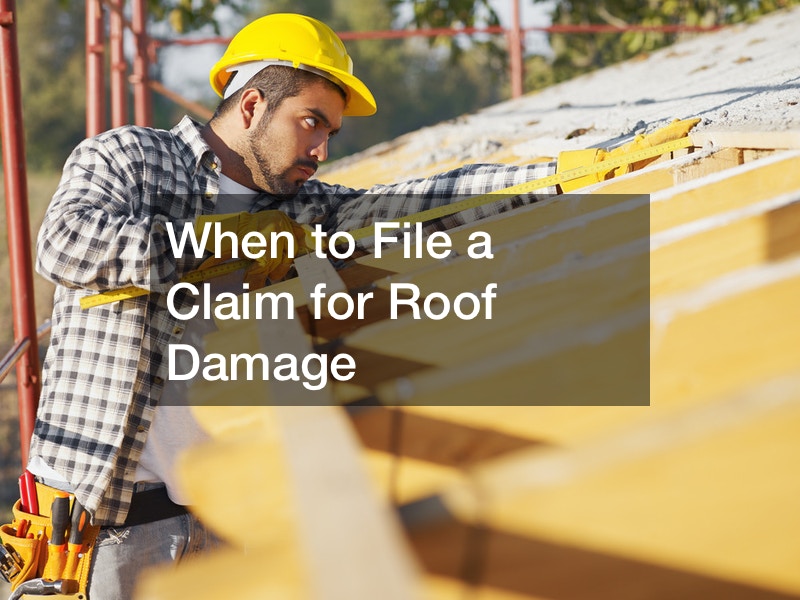
There are several types of insurance offered by different insurance companies. For example, Christian insurance. However, when you’re in the market for a new home, one of the first things you need to do is purchase homeowners insurance. While it seems like an easy enough process, choose the coverage best suited for your needs and sign on the dotted line. Several factors can complicate matters during this time. From location to various kinds of coverage, here’s what you need to know before obtaining the best home insurance for new builds.
Check Your Location and Zoning Laws for Home Insurance Requirements

It’s important to understand where you live before you shop for the best home insurance for new builds. This means knowing what kind of zoning ordinances (local laws) apply to your property. Zoning ordinances are put in place by city planners and local governing agencies to maintain the safety and stability of their communities. This is by no means an easy task, given that so many factors affect our daily lives within one location, such as population density, residential fuel services, traffic patterns, environmental conditions, and more. As a homeowner who wishes to protect their investment in these areas, it’s helpful to consider some examples of common zoning regulations, such as:
Community Character: Many cities have implemented new ordinances that limit the types and number of structures built in a given area. These laws are in place to maintain the community’s character by respecting historical residences, unique architectural features, and natural habitats.
Environmental Factors: Zoning ordinances can impact your property based on environmental concerns such as flooding, wind erosion, or other coastal factors. In these cases, if you live near water -such as beaches, rivers, or lakes, there may be special standards put in place for protecting against a storm surge or other adverse conditions that could result from climate change or severe weather events.
Land Use Restrictions: There are also instances where zoning ordinances have been implemented to protect a particular interest group’s practices, resources, and rights. This is typically where lands such as national or state parks, wildlife refuges, and other protected natural areas are concerned. If you live in such a region, it’s important to know what limitations you must respect; failure to do so could result in fines and even imprisonment for certain violations.
These are just a few examples regarding zoning ordinances that may affect rates when purchasing the best home insurance for new builds. By complying with these rules, you will not only protect yourself from unwanted accidents, but it can also provide peace of mind knowing that others in the community benefit from the same sense of security.
Consider the Property and Out Buildings When Purchasing Home Insurance
Many people have heard that it’s important to insure the home itself but often don’t consider the value of other structures on their property when choosing the best home insurance for new builds. These can include detached garages, storage sheds, and barns, termed outbuildings by insurance carriers. Depending on where you live, how much these types of buildings are worth can impact what kind of coverage you’ll need for them to meet local zoning requirements. It’s also important to assess whether they’re covered under your homeowner’s policy if they catch fire or are damaged in some way during storms, lightning strikes, etc.
Buy Enough Coverage to Pay for Damages

You have just finished the process of purchasing a new home. You are proud, happy, and ready to relax after a long journey. The next thing you know, you receive a letter from your insurance company that they will not cover your home anymore because you now live in an area with higher risk activities (e.g., crime).
What can you do? One option is to purchase enough coverage to pay for damages as advised by experts. If possible, this should be done before purchasing new home insurance. It means knowing what damage would cost if it occurred and how much money it takes to replace each damage like roofing damage. For example, should one buy enough coverage to pay for $100,000 or $200,000 of damages? For many people, the answer to this question is that they should probably buy enough coverage to pay for $100,000 in damages. You could face significantly higher premiums if you purchase more than what experts recommend. For example, suppose you were paying $500 per year and purchased enough coverage to pay for $100,000 in damages instead of just the recommended $50,000 (which costs only $450). In that case, your premium will go up significantly (e.g., double or triple). Insurance companies charge additional money to cover expensive items like homes with high-value appliances and electronics.
Therefore, before purchasing the best home insurance for new builds, learn how much it costs to incorporate building repairs to cater for damages. For example, the number of tiles in the kitchen, number of light bulbs to be replaced by your local electrician, length of home cables, and buy just enough coverage to pay for those costs if they occur.
Compare Home Insurance Quotes from Several Companies
When getting the best home insurance for new builds, you must be well-versed about the options available in the market today for you to secure a policy that can best protect your home. Currently, homeowners encounter a wide array of plans when buying home insurance. They need to investigate different companies and compare prices to get an ideal deal on insurance coverage.
Sorting out information from several websites today has become easy because homeowners only need internet access, and they can immediately get quotes from several carriers at once. However, every homeowner needs to take advantage of various online tools that will help them determine the ideal type of plan for their needs, for instance, if they need coverage to cater for any roof repair that might arise.
Moreover, when you compare home insurance quotes from several companies, websites today offer a lot of functionalities and features that homeowners can use. The internet has become an excellent platform where homeowners can easily gather different types of information to help them save money from insurance premiums. In addition, sites also provide calculators that will guide readers in determining the amount they need to spend on coverage every month and tools that allow customers to narrow down their options based on certain factors such as amount limit and deductible value.
Individuals need to compare home insurance quotes from several companies to have a clear idea about the type of plan they should purchase. As soon as people realize what they need, securing the ideal type of policy will be simpler. This way, they will be able to purchase the best home insurance for new builds.
Be Aware of Insurance Requirements That May Apply To You

As mentioned before, certain types of insurance may be required by local zoning laws or other regulations if your house is located in an area with special restrictions. For instance, if you live on beachfront property, there may be requirements regarding how much homeowners insurance would have to pay out for storm damage if another hurricane were to strike again, something that could cost millions of dollars for some years. Some areas require earthquake insurance, so make sure to check on these before signing on for the best home insurance for new builds.
Choose the Correct Type of Coverage Based On How You Use Your Home
Before you start comparing companies and their insurance plans, it’s a good idea to take stock of your home. Make a note of things that aren’t visible from the street. Check every window, look inside every closet and get up on a ladder or step stool to get a new perspective on everything from light fixtures to fans. Think about how often you use each room in the house, what kind of flooring is present throughout, and whether any expensive electronic devices may need special attention from your carrier for coverage purposes.
If you use certain rooms more frequently than others, for example, you spend a lot of time hanging out in the basement, make sure those areas are covered by your policy as well. Also, look at how your home looks from the street. Is your front porch or back patio visible from the road? Can people visibly see the type of landscape supply you have incorporated into your home?
Once you’ve completed your walkthrough and taken notes on everything, begin comparing quotes. While it may be tempting to choose the cheapest insurance plan, make sure they provide coverage for your needs as well as at least meet your state’s legal requirements. You don’t want to put yourself in financial jeopardy by not having enough coverage when disaster strikes. Make comparisons based on cost-benefit analysis of available plans. This means that you should compare features across multiple plans, which will allow you to get an idea of how much each feature costs per month. Once you have a good idea of which plans fit your needs and budget best, it’s time to sign up for the best home insurance for new builds.
Make Sure To Factor in Deductibles for Home and Auto Insurance

The question of how much homeowner’s insurance coverage you need is very important, but it pales in comparison to this: How high a deductible should policyholders consider? This is more than just a financial consideration; it’s also about peace of mind and the type of risk you’re willing to take. A higher deductible can mean lower monthly premiums on your homeowners’ or renters’ insurance. And while that has some appeal, the more money someone puts down upfront, the less likely they will pursue smaller claims, which can add up quickly if not paid promptly by insurers. By contrast, if you have a low deductible (say $250 or even $500) and you have a claim, companies may be more willing to work with you. Of course, there’s one big downside: It’s going to cost you more out of pocket if something goes wrong.
Why does the right deductible matter? People focus on how much coverage they need; higher limits mean higher premiums. But choosing the right deductible is key, especially on policies that include liability protection (which covers bodily injury and property damage that others sustain). If your house burns down and you’re held responsible for damages up to the limit of your policy, say, $200,000, and you have a low deductible (say $500), your insurer is going to eat the first $500 in costs. But if you have a high deductible (say $5,000), you’re going to feel the pain yourself until more of the claim is paid by your insurer. In essence, higher deductibles mean that insurance will be cheaper for you. So you must make sure to factor in deductibles for home and auto insurance. However, it would help if you were careful on how much your deductible relates to the amount of claim you will receive to avoid being overcharged. If you have problems with the insurance company regarding compensation, you can always seek help from an appeals lawyer to assist you in obtaining a fair compensation share.
Get Homeowners Insurance Even If You’re Still Paying off a Mortgage
Some homeowners never get rid of their mortgages. They make their payments month after month but continue to pay off the loan itself rather than the house. While a mortgage is a huge pledge of financial commitment, life events sometimes force people into this way of living. Family breakdowns such as those that apply in family law like divorce or death can mean an owner has no one else to pass on the home to, and they want to avoid selling it for as long as possible. In normal cases, what happens is, before a property owner dies, an estate planner assists this individual to execute plans on how they will pass their assets to their beneficiaries.
In some cases, homes are foreclosed when owners lose their jobs and cannot afford repayments, meaning banks take ownership before putting them back on the market. Regardless of whether you’re renting out your home while still paying off your mortgage or if you don’t want to sell, you still need homeowners insurance. For most homeowners, their home is their biggest asset and is likely to be the reason they have a high quality of life. While your property may not generate an income on its own, any damage it suffers can be costly and interrupt your lifestyle. Therefore, if the worst does happen, you want to know that all costs will be covered with dependable coverage. Even though you’re still making your mortgage repayments, as long as the bank is aware, there should be no problem arranging this type of protection for your home.
The best home insurance for new builds is important, and there are many benefits of having it. Hopefully, with all the tips and advice, you’ll be able to obtain this type of policy confidently and get what you need for your own home either right away or in due time.



